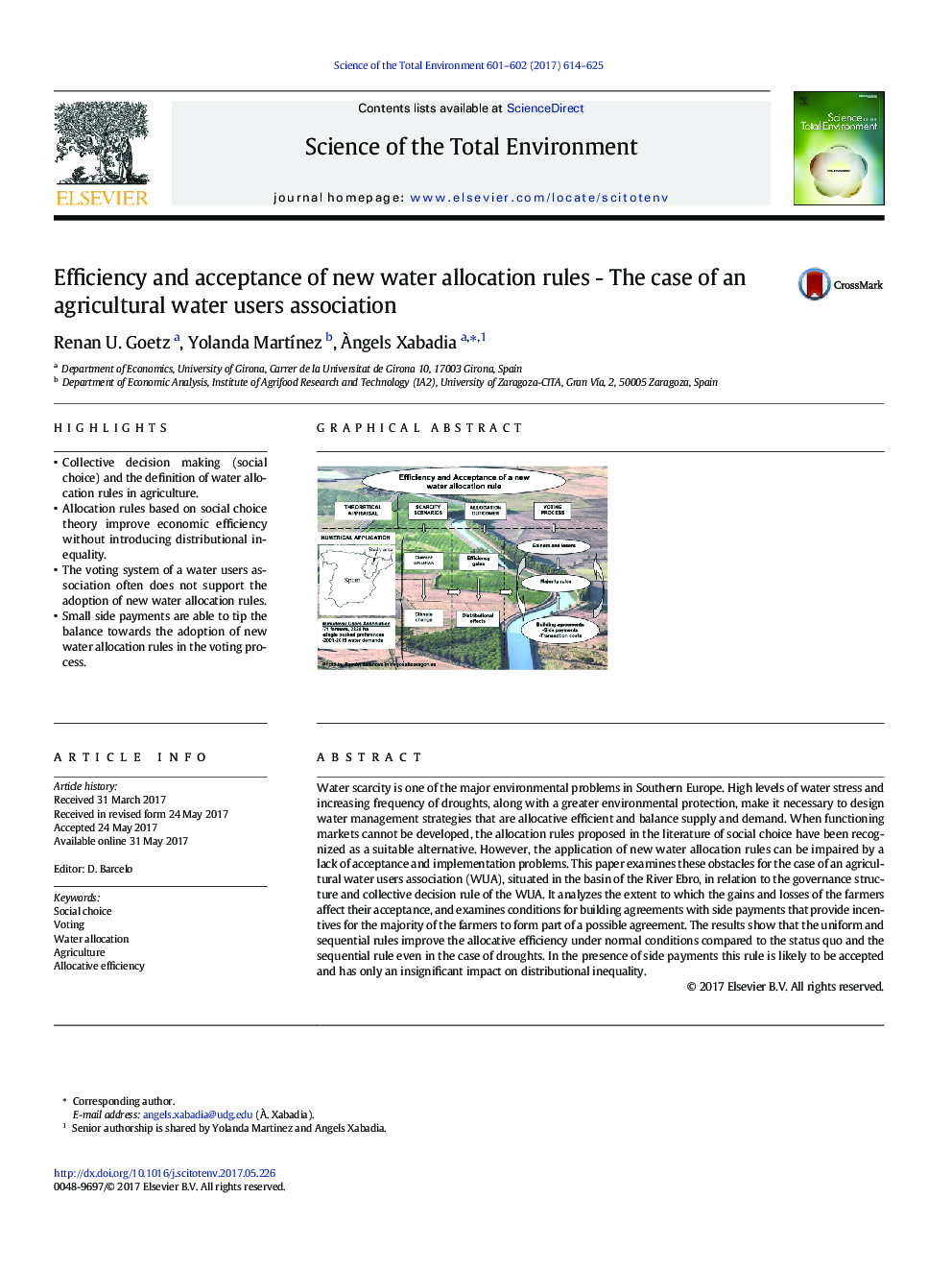| کد مقاله | کد نشریه | سال انتشار | مقاله انگلیسی | نسخه تمام متن |
|---|---|---|---|---|
| 5750418 | 1619697 | 2017 | 12 صفحه PDF | دانلود رایگان |
- Collective decision making (social choice) and the definition of water allocation rules in agriculture.
- Allocation rules based on social choice theory improve economic efficiency without introducing distributional inequality.
- The voting system of a water users association often does not support the adoption of new water allocation rules.
- Small side payments are able to tip the balance towards the adoption of new water allocation rules in the voting process.
Water scarcity is one of the major environmental problems in Southern Europe. High levels of water stress and increasing frequency of droughts, along with a greater environmental protection, make it necessary to design water management strategies that are allocative efficient and balance supply and demand. When functioning markets cannot be developed, the allocation rules proposed in the literature of social choice have been recognized as a suitable alternative. However, the application of new water allocation rules can be impaired by a lack of acceptance and implementation problems. This paper examines these obstacles for the case of an agricultural water users association (WUA), situated in the basin of the River Ebro, in relation to the governance structure and collective decision rule of the WUA. It analyzes the extent to which the gains and losses of the farmers affect their acceptance, and examines conditions for building agreements with side payments that provide incentives for the majority of the farmers to form part of a possible agreement. The results show that the uniform and sequential rules improve the allocative efficiency under normal conditions compared to the status quo and the sequential rule even in the case of droughts. In the presence of side payments this rule is likely to be accepted and has only an insignificant impact on distributional inequality.
421
Journal: Science of The Total Environment - Volumes 601â602, 1 December 2017, Pages 614-625
